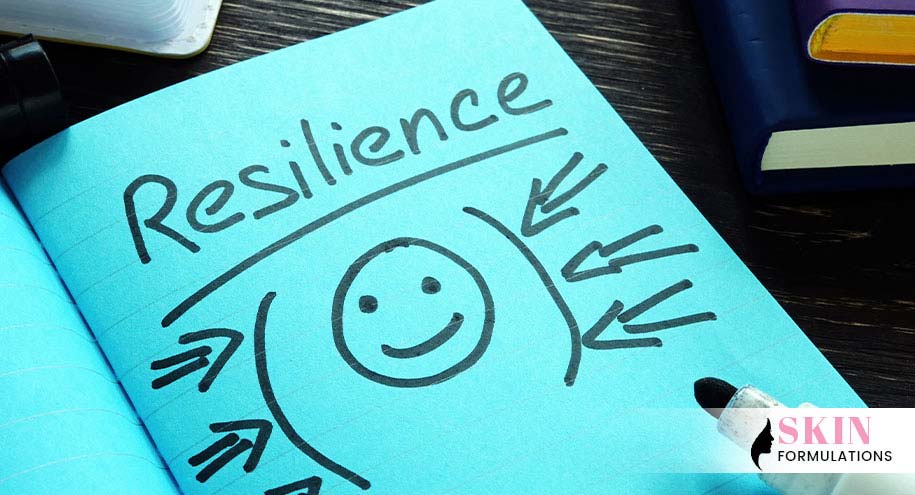Emotional Resilience – Why It’s Important, and How to Build It!

Introduction
Emotional resilience is the ability to cope with stressful situations without suffering from adverse effects that affect physical and mental health. Lacking emotional resilience to help you through emotional crises and radical lifestyle changes may make you more prone to various diseases. That’s why it’s critical to put extra effort into developing it, especially if you’re finding yourself under a lot of pressure in your everyday life.
Test Your Emotional Resilience
We’ve come up with the following questions that may help you get at the bigger picture when puzzling whether you’re resilient enough. You can answer each of them with strongly agree or agree, neutral, disagree, or strongly disagree.
- I often think about my failures and find it difficult to get over them.
- I tend to worry about problems that I have no control over.
- I do not have a clear plan for dealing with stress but rather let it go away on its own.
- I often question my abilities.
- Thinking about the future scares me.
Tentatively, the more you agree with these statements, the less emotionally resilient you are. Still, these questions are not subject to any scientific analysis whatsoever, and we can’t use them as 100% truth.
So Why Is Emotional Resilience Important?
Inevitably, everyone will have to face multiple stressful situations and crises in their lives. Therefore, it’s critical for us to adjust and to be able to cope with such circumstances. Possessing a more robust emotional resilience will help you perform better under stress and situations that may catch you off guard.
There’s a study from 2018 that looked at the effects of emotional resilience on performance in surgeons and healthcare professionals. It suggests that being able to get by with stress is essential for performing well in these highly demanding professions.
Being emotionally resilient doesn’t mean you lack emotions. It’s a more mature and philosophical way to look at life and the obstacles it presents us.
The Benefits of Having A Potent Emotional Resilience
1. It Promotes a Stronger Health

We’ve all heard hundreds of times that stress is a significant factor for a long list of conditions and diseases like high blood pressure, diabetes, heart attack, stroke, and even cancer. Well, being emotionally resilient will mean that you can cope better with stress. Therefore, people possessing this quality may have a lower risk for various health issues.
Research from 2018 studied the relations between emotional resilience and mental health. The scientists found out that more resilient people are less likely to suffer from mental illnesses.
2. You Get Better Results in Your Endeavors
Inevitably, if you’re more emotionally resilient, you’ll feel less weary from busy workdays. This way, you can start the next day with the same energy without experiencing setbacks. Being less prone to stressing out will make your work and success more consistent and help you achieve higher results.
3. It Makes You More Likeable

Everyone has problems, but nobody wants to hear about others’ mishaps all the time. A robust emotional resilience will make a person more optimistic. It can ultimately lead to more energetic and positive conversations that can win you a lot of friends.
On the other side of the spectrum, lacking resilience will make you more susceptible to stress and moroseness, which may hamper your energy in conversations with people.
Problems That Can Arise If You Lack in Emotional Resilience
Not being emotionally resilient may have you take up all of your troubles from work back home, which can hurt your relationships with family. Besides, if you happen to have a fight with your partner and let it take over, you may decrease your performance and results at the office.
Moreover, we’ve already talked about health issues. Stress is thought to influence a lot of conditions and even cause some of them on their own.
Being less resilient may mean that your coping mechanisms are not enough to handle stress well. In the long run, this may lead to burnout that can hamper your performance in all of your endeavors.
How to Train and Develop Your Emotional Resilience
Thinking about the problem is the first step to fixing it. The following tips might help you develop your emotional resilience and make you less prone to the consequences of stress. Like almost everything else, this is a trait that everyone can nurture and improve.
1. Start Thinking Positively
Interestingly, many less resilient people are prone to pessimism and a generally negative outlook on everyday life. Something that might help is to try not to judge people around you.
Judging can lead you to build up negative emotions within you that can induce stress. Try to look for the positive sides of everyone and everything.
2. Strengthen Your Relationships with Friends and Family
Some people say that friends and family are the reason to wake up in the morning. Strengthening your relationships with them may have you feel more secure and less anxious. Do more of what makes you genuinely happy and dwell on the beauties of life.
3. Try Out Meditation

A few years ago, meditation was seen very differently. However, nowadays, even clinical studies demonstrate the benefits of meditation in reducing stress and reaching a higher state of mind.
4. Accept Change and Move Past Your Regret
Many people dwell on the past for what could have been and what went wrong. However, as simple as it may seem, if it’s in the past, there’s nothing we can do about it but learn from it. Move on and look up to the future.
Final Words
Emotional resilience has a substantial impact on our lives and may have a relation to various health disorders. We shouldn’t let our emotions take control over us because it can lead to grievous short and long-term trouble. Lacking it can hamper our performance in everyday tasks and lead to quarrels in our relationships.
We hope you now have a broader perspective on emotional resilience, and you’ll be able to work towards creating a better version of yourself.
References
1] https://pubmed.ncbi.nlm.nih.gov/30220608/2] https://www.ncbi.nlm.nih.gov/pmc/articles/PMC6218704/
3] https://www.ncbi.nlm.nih.gov/pmc/articles/PMC4142584/
Deprecated: Function WP_Query was called with an argument that is deprecated since version 3.1.0!
caller_get_posts is deprecated. Use ignore_sticky_posts instead. in /home/healthwebmagazin/skinformulations.com/wp-includes/functions.php on line 6121






